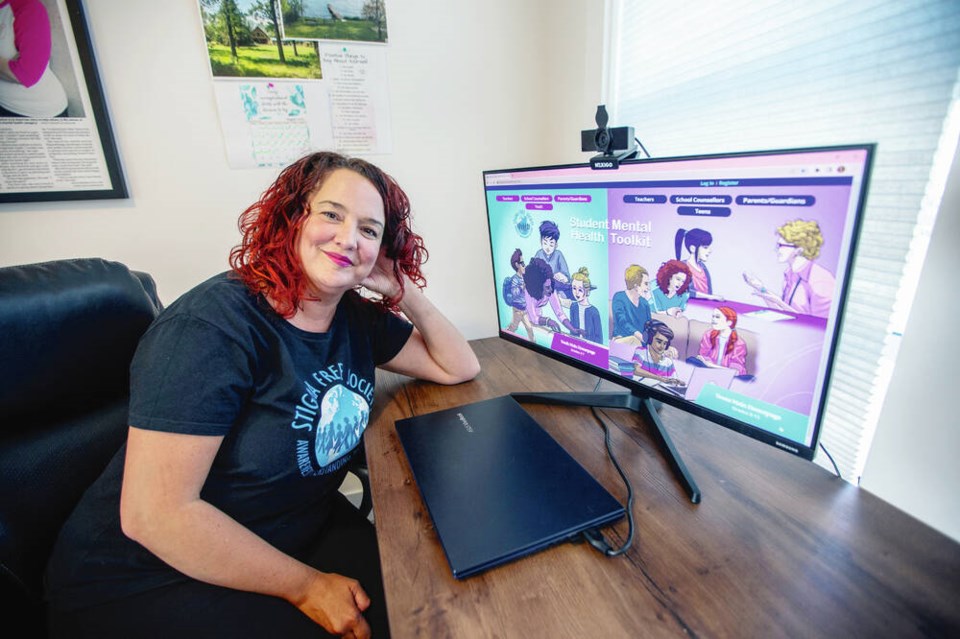The Stigma-Free Society has transitioned to a virtual-only future as it gives parents and educators the tools to help school-age youth and teens cope with mental health and well being issues, with a new online Student Mental Health Toolkit.
The charity was founded in 2010 with a mission to promote wellness education and to support young people on their mental wellness journey. They advocate for the inclusion of mental health education in schools.
Prior to the COVID-19 pandemic, the society exclusively offered in-person school presentations on dealing with stigma, with a focus on mental health. During the virtual presentations, which began during the pandemic, students can now join live 45-minute sessions via an online platform.
“The virtual presentations are just a different way of delivering the message,” said Andrea PAQUETTE, president and co-founder of the Stigma-Free Society. “We have presenters as young as 11 years-old sharing stories of how they faced and eliminated stigmas.”
The presentations are part of the Student Mental Health Toolkit program, which covers two school demographics - Grades 4 to 7 and 8 to 12. The literature and resource guide is targeted to youth, parents/guardians as well as educators and school counsellors who wish to promote mental wellness. The toolkit’s mental wellness lesson plans align with B.C. curriculum guidelines.
“Funding by the Victoria Foundation plays an important part in making this program accessible to youth,” said Paquette.
In the virtual toolkit, educators and school counsellors can share documentary videos, mental health topics and personal stories with their students in classrooms or at home.
In the virtual presentations a presenter shares their journey with stigma, with a co-presenter that facilitates the online presentation. The live presentation allows for immediate feedback from viewers, with time set aside for a question and answer segment after.
Paquette said that the overarching message they are trying to get out to youth is “You are not alone.”
She said that the change from in-person school presentations to virtual has meant the message now reaches a larger audience, as the presenter does not have to physically travel to distant schools.
The virtual programming has expanded to reach students in school districts in northern British Columbia and the rest of Canada.
She said that the Telus Healthy Living Network has also used some of the society’s anti-stigma videos, further increasing the the reach of the messaging.
The society has also developed a Rural Mental Wellness Toolkit, a community-based mental health initiative to provide resources and peer support for individuals living in agricultural and rural communities.
“We have begun tailoring some of our messaging for northern B.C.,” said Paquette. “We are adapting and changing. People need to know there is always hope - and always help.”
For more information, go to stigmafreesociety.com.



